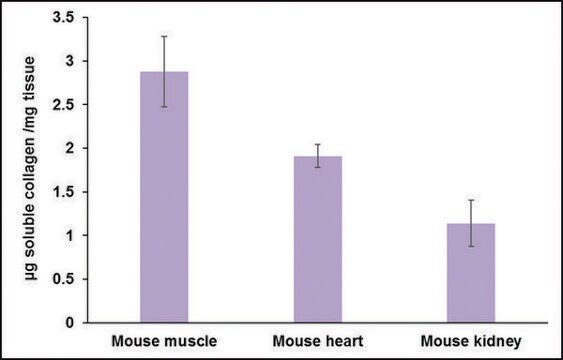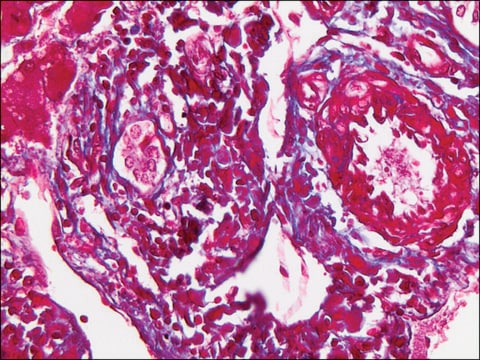MAK357
Hydroxyproline Assay Kit (Perchlorate-Free)
sufficient for 100 colorimetric tests
About This Item
Productos recomendados
usage
sufficient for 100 colorimetric tests
detection method
colorimetric
relevant disease(s)
rheumatological diseases; cancer; neurological disorders; cardiovascular diseases
storage temp.
−20°C
General description
Features and Benefits
Suitability
Principle
Replaced by
signalword
Danger
Hazard Classifications
Aquatic Chronic 3 - Eye Dam. 1 - Met. Corr. 1 - Resp. Sens. 1 - Skin Corr. 1A - Skin Sens. 1 - STOT SE 3
target_organs
Central nervous system
Storage Class
8A - Combustible corrosive hazardous materials
flash_point_f
188.6 °F
flash_point_c
87 °C
Elija entre una de las versiones más recientes:
Certificados de análisis (COA)
¿No ve la versión correcta?
Si necesita una versión concreta, puede buscar un certificado específico por el número de lote.
¿Ya tiene este producto?
Encuentre la documentación para los productos que ha comprado recientemente en la Biblioteca de documentos.
Nuestro equipo de científicos tiene experiencia en todas las áreas de investigación: Ciencias de la vida, Ciencia de los materiales, Síntesis química, Cromatografía, Analítica y muchas otras.
Póngase en contacto con el Servicio técnico






